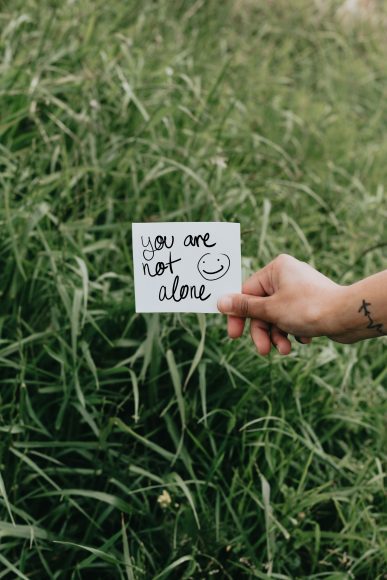As we continue to navigate living through a pandemic, the warning sounds are growing louder regarding our children’s mental health. In October, the American Academy of Pediatrics, the American Academy of Child and Adolescent Psychiatry, and the Children’s Hospital Association declared a national emergency in children’s mental health.

As a Momma and as a Child and Family Therapist, this is a sobering reality. From the earliest days of the lockdowns, I’ve heard countless parents express concern about the long-term implications of the pandemic on their children and their development. Parents grappling with how to keep their child physically safe and how to protect their child’s wholistic development amidst changes of routine, modifications of education, interruption to connection with extended family and friends, and more.
Often, underneath the concern, there are lingering questions of
“What can we do?”
“How can we protect our babies from this?”
We have been faced with how much is out of our control. Facing our lack of control can leave us feeling uncertain about our role as parents and wondering if there is anything we can do to protect our child’s mental health.
Similar to many areas of parenting, there is no checklist or guaranteed outcome. We do not bear all of the responsibility or all of the power to safeguard our child from everything, but despite this, there are things we can do to help cultivate health. Below, I have compiled a list of proactive things we can do to care for our children’s mental health.
But first –
As someone who has had the immense privilege of sitting with parents and providing parent coaching amidst all of this – I want to first look you in the eyes and say,
“Wow – this has been hard, hasn’t it? Caring for babies, children, and teens was already hard … and now you’re two years into living through a pandemic. Whew.”
I would love to hear your stories and weep with you for what has been lost and what has been hard. I want to cheer you on for all of the ways you’ve continued to connect with your children, love them, and provide for them. I want to tell you that you are doing a good, good job. And that you deserve care and to be protected too. I would love to invite you to exhale, share your experience, and shed a few tears. I want to remind you that perfection is not needed in parenting, and that you are more than enough.
So, please do not take this list as a to-do list or a moment of measurement. Please take this list as a guide of options to consider as you continue to build on all of the beautiful ways you care for and protect your babies. I pray it helps you feel empowered with possibility, not discouraged or less than.
Proactive Ways to Care for our Children’s Mental Health
Meet Basic Needs
One of the primary ways we cultivate health in our children is to be sure their basic needs are being met. These needs include adequate sleep, nutrition, hydration, a sense of access to and connection with their caregivers, time and space to play, and the ability to rest in what to expect regarding the rhythm of their days and weeks.
Make Time for Play
One of the primary ways that humans process our lives is through emergent play. Find ways to cultivate play that invites your child to explore, discover, and express themselves. This play is typically open-ended such as art, playing with figurines or dolls, acting, building, creating, etc. Play that involves a lot of structure, rules, or is outcome-focused does not allow for the same sort of emergent process to unfold (i.e.: video games, sports games, board games, etc.).
Make Space for Sharing and Tears; Respond with Empathy
Check in with your child after a disappointing or worrisome experience. Listen and watch for clues that help you make sense of how they are processing their world. Be ready to listen when they start to share their thoughts and questions. Communicate to them that what they are saying is important to you, that you’re so glad that they’re sharing it, you want to hear more. Refrain from providing solutions, teaching, reframing, or minimizing their experience. (Check out Brene Brown’s video on Empathy)

Protect and Build Your Connection
Amidst stressful, uncertain days, it can be easy to miss our kids and not really connect during the business of life. Do a “pulse check” on each of your individual relationships with your children. Ask yourself – do I feel close to my child right now? Do they feel close to me? If not … find some ways to connect and spend time together. Feeling connected to a safe, warm and available parent/caregiver cannot be undervalued; this is a harbor for our children.
Cultivate a Village
While you are a safe place for your child, they also were made to be embedded in a community of caregivers. Find ways to help your child build and maintain connections with other safe, healthy adults who you trust— aunties, uncles, grandparents, teachers, family friends, mentors, coaches, etc.
Enforce Technology Boundaries
Just like we set the structure and rules for safety and provide supervision on the playground, within our classrooms, and all of the places our children and teenagers go – we must set structure and safety rules and provide supervision for our children and teenagers on the internet and on devices. This may require us to learn about apps, social media, and websites we couldn’t care less about or think are silly, or that overwhelm us. Our kids and teens need our oversight when it comes to the content they’re consuming and the conversations they’re having.
Seek Additional Care
Sometimes, it is helpful to have additional support in the area of caring for a child’s mental health. If you have concerns regarding behavior or patterns you are seeing in your child – consider seeking additional help. A great step towards this can be connecting with your pediatrician, your child’s teacher, or school counselor. They may have additional insight, and it may be helpful to hear if they share your concerns. They may also be able to provide local, trusted referrals.
Take Care of Yourself
The old adage, “Put your own oxygen mask on first, before assisting others,” is essential to remember when caring for our children. We cannot provide what our kids need if our needs are not being met. The same nurturing care we seek to provide our children is care that we need as well. It can be really hard to know how to have these needs met, especially these days, but practice finding ways to ensure that you’re getting sleep, receiving adequate nutrition and hydration, and have space for connection, play and movement.










